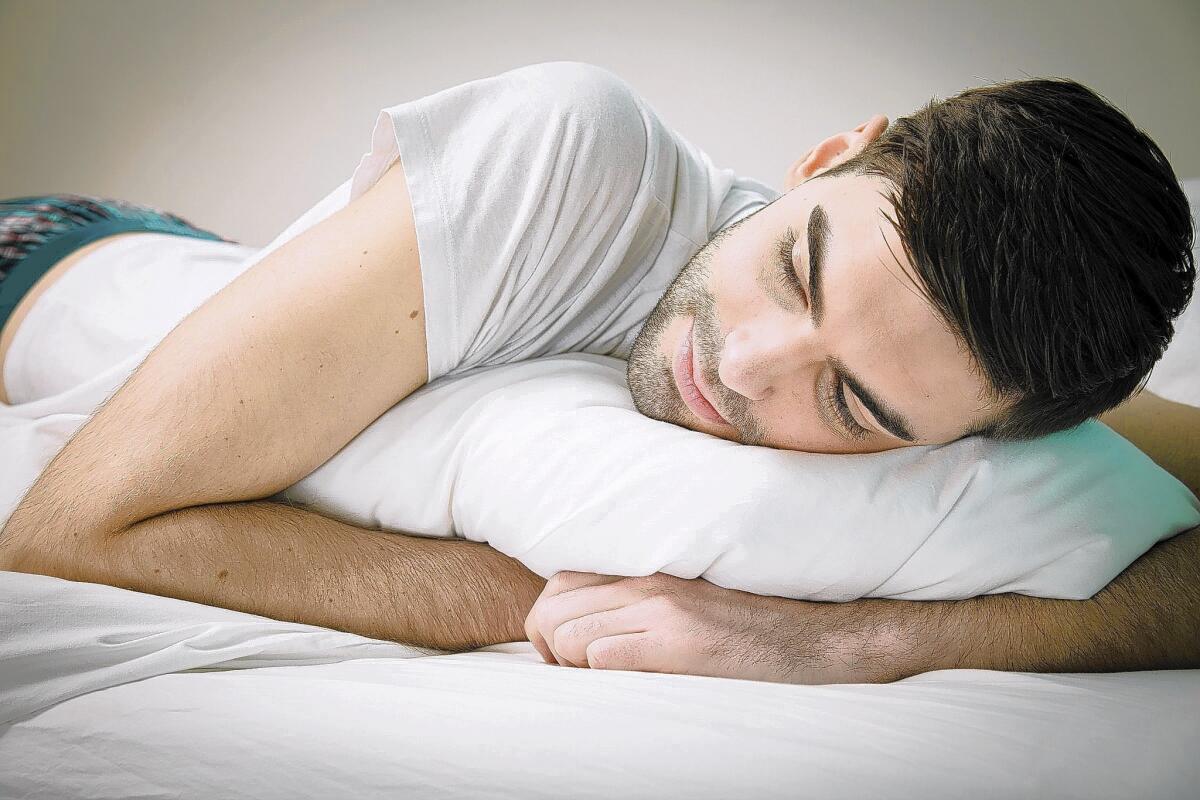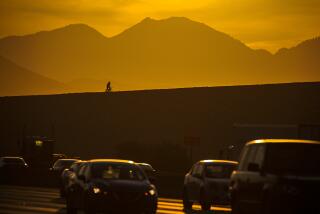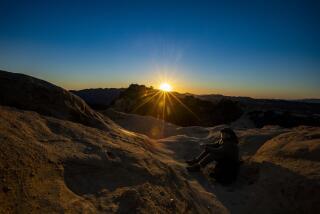Daylight saving time may have health costs

Whether we like it or not (polls say most of us do), it’s time to start saving daylight again.
Depending on whom you ask, our March Madness of the “spring forward” variety was invented to conserve energy, or to make pleasant summer evenings a little longer or, if the person you ask happens to be humorist Dave Barry, to annoy Dave Barry. “Every year, ‘officials’ tell us to turn all our clocks ahead one hour,” he once griped, “only to turn around a few months later and tell us to turn them BACK. Make up your minds, ‘officials’!”
Any effects the time change might have on our health and well-being were pretty much discounted as minimal at the beginning — and, for many, continue to be today. According to Yvonne Harrison, a sleep specialist at Liverpool John Moores University, “The start of daylight saving time in the spring is thought to lead to the relatively inconsequential loss of one hour of sleep on the night of the transition, but data suggest … a cumulative effect of sleep loss, at least across the following week, perhaps longer.”
In fact, it’s possible to make a number of evidence-based predictions about what to expect after daylight saving time, or DST, begins early Sunday morning.
Quantity and quality of sleep. We all have nights when we can’t get to sleep, or, if we do, it doesn’t last for long. On those nights, we might say we didn’t sleep very well, but scientists would say we didn’t sleep very efficiently. Sleep efficiency is defined as the ratio of time we spend actually sleeping to the total amount of time we spend in bed (presumably trying to sleep), and research shows that, in general, sleep efficiency goes downhill after the switch to daylight saving time for as much as a week or more. In one 2006 study, efficiency was reduced by 10% on average over the five days after the shift, with sleep time reduced by almost exactly one hour per night. Other studies have found that adjusting to the time change is especially hard for “night owls.”
Class and school performance. A 2009 study in the journal Sleep Medicine examined the effects of the clock shift specifically in adolescents, finding that, overall, the kids were sleepier than usual during the day for three weeks after the time change. In a move that just might make this the favorite scientific study ever on high school campuses, the study authors suggested that no tests should be given during the first week — or perhaps weeks — after the time change.
Traffic accidents. Research shows that traffic accidents go up during DST, or else they go down, or else the numbers don’t change at all. Make up your minds, scientists! Actually, the inconsistent results are not terribly mysterious. Overall, more driving is done in daylight during DST than during standard time, and accidents are less likely in daylight because drivers can see better. On the other hand, in the first days after the change to DST, drivers are apt to be sleepier than usual, and that makes accidents more likely. (More than one study has found that driving while sleepy is no different from driving while drunk.) So depending on its design, any particular study could find either fewer or more accidents — or the two opposite effects could even cancel each other out.
Heart attacks. A number of studies have found that the risk of heart attacks goes up in the first few days after DST begins, especially on that Monday, with the increase ranging from 5% to 10% and even more. No one knows for sure why, but heart specialists have suggested possible culprits. Sleep deprivation can increase inflammation, which is associated with heart attacks. Also, our cells have their own clocks and expect certain things to happen at certain times. Unfortunately, when we set our clocks ahead an hour, the cells don’t know they’re supposed to jump their clocks ahead too. They gradually adjust, but until they do, they can be caught off guard and react poorly to stresses they might ordinarily cope with just fine.
Physical activity. DST makes like Robin Hood, stealing an hour of daylight away from the morning and giving it to the evening — when, it is often assumed, people can take better advantage of it. A study published in the Australian New Zealand Journal of Public Health in 2010 found that many people try to take advantage of the extra evening hour by exercising. When researchers asked more than 1,000 adults in western Australia about their exercise habits, nearly half of them said they changed their routines during DST, with fewer exercising in the morning and more exercising in the evening. A less predictable result: Overall, daily exercise sessions were less frequent during DST, with 8% of those surveyed seemingly taking advantage of the extra daylight hour to veg out.
Cyberloafing. In a 2013 survey by Salary.com, only 20% of workers claimed that when they’re at work they never go to any websites that are not work-related. Meaning that (at least) 80% of workers are not so noble. There’s a word for that, “cyberloafing,” and a 2012 study in the Journal of Applied Psychology found that they do more of it than usual right after the shift to DST. Researchers used Google searches for “YouTube,” “videos,” “music” and “ESPN,” and calculated that, for the years 2004 to 2009, the proportion of such searches was higher on the first Monday of DST than on the Mondays immediately preceding and following it. The study authors hypothesized that the rise was because of loss of sleep after the time change.
ALSO:
How to add a workout at the workplace
Does medical marijuana help with pain, MS and appetite loss?
Move over, acai: Latest ‘superfruits’ aim to make a nutritional mark






